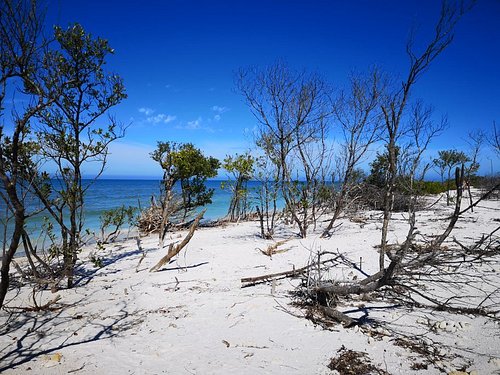Discover the Unspoiled Beauty of Dunedin’s National Parks
Welcome, adventurous parents and nature-loving families! Are you ready to introduce your children to the great outdoors and create unforgettable family memories? Dunedin, with its spectacular landscapes and rich biodiversity, is home to some of New Zealand’s most enchanting national parks. In this guide, we’ll take you through the magical journey of exploring these natural havens, offering tips and insights to ensure a fun-filled and educational experience for everyone. Let’s dive into the world of outdoor wonders and make your next family outing as exciting as it is informative!
The Best National Parks in Dunedin for Families
Dunedin is surrounded by natural reserves that boast a variety of activities suitable for families of all shapes and sizes. Whether you’re looking for serene hikes, wildlife encounters, or just a peaceful picnic spot amidst nature, these national parks have something for every family member to enjoy. Here we will highlight some of the top national parks that are a must-see during your Dunedin adventure.
Otago Peninsula
The Otago Peninsula is renowned for its stunning coastal scenery and wildlife. While not a national park per se, it’s an area of conservation with national park-like qualities, making it a starting point for many. Be prepared to meet rare yellow-eyed penguins, majestic royal albatross, and playful fur seals. The peninsula’s diverse environments, which include sandy beaches, rocky shores, and rolling hills, offer plenty of hiking and wildlife viewing opportunities.
The Catlins
Tucked to the southeast of Dunedin lies The Catlins, an area where lush rainforests meet the roaring sea. The region is part of the wider Catlins Conservation Park, featuring dramatic waterfalls, hidden caves, and fossilized forests. Educational and exhilarating, a visit to The Catlins provokes the imagination and provides a real-life lesson in geology and ecology.
Getting Ready: Tips for Visiting National Parks With Kids
Visiting national parks with children can be a delightful experience, but it does require some planning. Here are some expert tips to help you prepare for your outdoor adventure:
- Pack the Essentials: Make sure to bring sunscreen, hats, insect repellent, and plenty of water. It’s also wise to carry a first-aid kit for any unexpected scrapes or bites.
- Choose the Right Gear: Good walking shoes are essential for navigating trails, and layered clothing allows for the unpredictable weather that often accompanies Dunedin’s natural areas.
- Child-Friendly Activities: Opt for national parks that offer a variety of activities to keep your young explorers engaged, such as interactive trails, wildlife spotting, and designated picnic areas.
- Keep Safety in Mind: Always stay on marked trails, keep a close eye on your children and educate them about the importance of respecting wildlife and natural surroundings.
Embarking on a journey to national parks around Dunedin promises a mix of education, exploration, and exhilaration for your family. Not only will it encourage an appreciation for nature among your kids, but it also offers a chance to bond and create lasting memories. Let’s gear up and set out to discover the wild side of Dunedin!
Stay tuned as we dive deeper into each park, offering you an insider’s guide to making the most of your visit, including where to spot the best wildlife and how to find the most family-friendly trails. Because after all, family adventures in the great outdoors are not just about seeing nature—they’re about experiencing it together.
Prepare for an enchanting outdoor adventure that offers more than just a walk in the park; it’s an opportunity for your family to grow closer while exploring some of Dunedin’s most precious national treasures. Will you spot a royal albatross soaring high? Will the cascades of Purakaunui Falls leave you breathless? There’s only one way to find out. Lace up your hiking boots, grab your binoculars, and let’s embark on a journey to remember!
To ensure that every family can have a comfortable and enjoyable experience, accessibility information will be provided for each park, so no one misses out on the adventure. Because in Dunedin, the beauty of nature is truly for everyone to savour and cherish.

5 Essential Things Parents Should Know When Preparing for National Parks in Dunedin
Embarking on an outdoor adventure to the national parks around Dunedin is the perfect way to instill a love for nature in your children. To ensure your trip is as smooth and enjoyable as possible, here are five essential things every parent should know when planning to visit these natural playgrounds.
1. Research and Plan Your Visit
Before setting out, conduct some research on the specific national park you plan to visit. Look into park hours, entry fees, and any special events that might enhance your visit. Check the weather forecast to pick the best day for your outdoor activities, and familiarize yourself with the park map to plot out must-visit spots and facilities like restrooms and restaurants. Plan the timing of your visit to coincide with activities and programs that cater to children, such as guided tours or educational talks.
2. Dress for Success
It’s crucial to dress appropriately for your adventure in Dunedin’s national parks. The key is layering – start with a moisture-wicking base layer, add an insulating layer, and top it off with a waterproof and windproof outer layer. Don’t forget comfortable, sturdy footwear for the entire family. Old sneakers won’t do the trick on the varied terrains you’ll encounter. Lightweight hiking boots or trail shoes are ideal. And remember, Dunedin’s weather can change in the blink of an eye, so always be prepared for a surprise shower or a drop in temperature.
3. Bring Kid-Friendly Supplies
Packing the right supplies can make or break your trip. In addition to the essentials (water, food, first aid), consider toys and educational materials related to the park’s flora and fauna. Binoculars for bird watching, magnifying glasses for inspecting insects, and a simple plant or animal guidebook can turn a hike into a living classroom. Carry a lightweight backpack with plenty of compartments to keep everything organized and easily accessible.
4. Embrace Teachable Moments
National parks are filled with opportunities for learning. Take the chance to teach your children about the local ecosystems, conservation efforts, and cultural significance of the areas you visit. Share information about the wildlife habitats they are exploring and the importance of leaving no trace to protect these precious environments. Encouraging respectful interaction with nature not only educates your children but also instills a sense of responsibility and stewardship.
5. Safety First
Always prioritize safety. Make sure children understand the importance of staying on marked trails and not approaching or feeding wildlife. Equip every family member with a whistle and discuss what to do if anyone gets separated from the group. Check ticks and other bugs post-visit, especially in wooded or grassy areas.
With these tips in mind, you’re well on your way to a successful and joyful visit to the national parks surrounding Dunedin. Each park offers a unique adventure, from wildlife encounters to breathtaking landscapes, and preparing properly will help ensure your family makes the most of these natural treasures. So, gather your gear, rally the troops, and set out for a day of exploration and discovery in some of New Zealand’s most beautiful settings – where learning is as abundant as the fresh, crisp air.
Remember, an adventure in a national park is more than just a day trip; it’s an enriching journey that the entire family can embark on together. These parks are a legacy we’ve been entrusted with, so let’s explore them respectfully and gratefully. Dunedin’s natural realm is waiting to be discovered, and it promises to be the classroom of a lifetime for both you and your children.
See more great Things to Do with Kids in New Zealand here. For more information see here
Disclaimer
The articles available via our website provide general information only and we strongly urge readers to exercise caution and conduct their own thorough research and fact-checking. The information presented should not be taken as absolute truth, and, to the maximum extent permitted by law, we will not be held liable for any inaccuracies or errors in the content. It is essential for individuals to independently verify and validate the information before making any decisions or taking any actions based on the articles.




